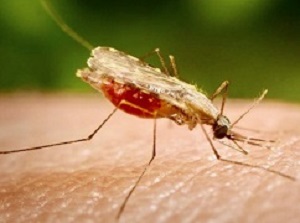 An attenuated malaria virus vaccine has offered the first evidence of durable protection against multiple heterozygous infections within the same host, according to results of a clinical trial by investigators from the National Institute of Allergy and Infectious Diseases (NIAID), the National Institutes of Health (NIH), and the University of Maryland School of Medicine.
An attenuated malaria virus vaccine has offered the first evidence of durable protection against multiple heterozygous infections within the same host, according to results of a clinical trial by investigators from the National Institute of Allergy and Infectious Diseases (NIAID), the National Institutes of Health (NIH), and the University of Maryland School of Medicine.
Malaria has been difficult to eradicate, particularly in Africa, largely due to reinfection from different strains of the disease. A 2016 world report from the World Health Organisation (WHO) stated that malaria was endemic in 91 countries and territories during 2015; 212m people were infected and 439,000 people – mostly children – died from it.
One of the most virulent strains of malaria, which is associated with high mortality, is caused by mosquitoes carrying Plasmodium falciparum. While high-level protection (>80%) against homologous infection by attenuated P falciparum sporozoite (PfSPZ) vaccine was previously reported in multiple studies, high-level response to heterologous strains of malaria has not been reached.
In the current study, 14 adult volunteers with no history of malaria who were given a 3-dose intravenous regimen of 9.0 x 10 PfSPZ per dose every 8 weeks, along with 6 control subjects, were challenged with controlled human malaria infection containing a heterologous strain of P falciparum parasites. At 19 weeks after the final immunisation, 64% (9/14) of immunized volunteers remained free of parasites (95% CI, 35% to 87%), while none of the non-immunised controls were parasite free (P =.012).
The same protocol was followed again at 33 weeks after final immunisation, in which both immunised and non-immunised volunteers were bitten by mosquitoes infected with a different strain of P falciparum parasite from the one used to develop the vaccine. After this second reinfection, 83% (5 of 6) of immunised volunteers remained protected from parasites compared again with none in the non-immunised control group. All malaria-infected participants were treated immediately.
Moderate antibody responses were detected in 13 of 14 PfSPZ-vaccinated volunteers; these responses increased approximately 40-fold after the second immunisation and again more moderately after the third vaccination. In contrast, T-cell responses peaked after the first vaccine and remained stable thereafter.
“Achieving durable protection against a malaria strain different from the vaccine strain over 8 months after vaccination is an indication of this vaccine's potential,” reported study coinvestigator Dr Robert A Seder, chief of the cellular immunology section of NIAID's Vaccine Research Centre. “If we can build on these findings with the PfSPZ vaccine and induce higher efficacy, we may be on our way to a vaccine that could effectively protect people against a variety of malaria parasites where the disease is prevalent.”
Based on the initial success of this trial, a phase 2 dose-comparison trial is underway to evaluate the durable effects of 3 different doses of the PfSPZ vaccine in West Kenyan infants from 5 to 12 months of age.
Abstract
A live-attenuated malaria vaccine, Plasmodium falciparum sporozoite vaccine (PfSPZ Vaccine), confers sterile protection against controlled human malaria infection (CHMI) with Plasmodium falciparum (Pf) parasites homologous to the vaccine strain up to 14 mo after final vaccination. No injectable malaria vaccine has demonstrated long-term protection against CHMI using Pf parasites heterologous to the vaccine strain. Here, we conducted an open-label trial with PfSPZ Vaccine at a dose of 9.0 × 105 PfSPZ administered i.v. three times at 8-wk intervals to 15 malaria-naive adults. After CHMI with homologous Pf parasites 19 wk after final immunization, nine (64%) of 14 (95% CI, 35–87%) vaccinated volunteers remained without parasitemia compared with none of six nonvaccinated controls (P = 0.012). Of the nine nonparasitemic subjects, six underwent repeat CHMI with heterologous Pf7G8 parasites 33 wk after final immunization. Five (83%) of six (95% CI, 36–99%) remained without parasitemia compared with none of six nonvaccinated controls. PfSPZ-specific T-cell and antibody responses were detected in all vaccine recipients. Cytokine production by T cells from vaccinated subjects after in vitro stimulation with homologous (NF54) or heterologous (7G8) PfSPZ were highly correlated. Interestingly, PfSPZ-specific T-cell responses in the blood peaked after the first immunization and were not enhanced by subsequent immunizations. Collectively, these data suggest durable protection against homologous and heterologous Pf parasites can be achieved with PfSPZ Vaccine. Ongoing studies will determine whether protective efficacy can be enhanced by additional alterations in the vaccine dose and number of immunizations.
Authors
Kirsten E Lyke, Andrew S Ishizuka, Andrea A Berry, Sumana Chakravarty, Adam DeZure, Mary E Enama, Eric R James, Peter F Billingsley, Anusha Gunasekera, Anita Manoj, Minglin Li, Adam J Ruben, Tao Li, Abraham G Eappen, Richard E Stafford, Natasha KC, Tooba Murshedkar, Floreliz H Mendoza, Ingelise J Gordon, Kathryn L Zephir, LaSonji A Holman, Sarah H Plummer, Cynthia S Hendel, Laura Novik, Pamela JM Costner, Jamie G Saunders, Nina M Berkowitz, Barbara J Flynn, Martha C Nason, Lindsay S Garver, Matthew B Laurens, Christopher V Plowe, Thomas L Richie, Barney S Graham, Mario Roederer, B Kim Lee Sim, Julie E Ledgerwood, Stephen L Hoffman, Robert A Seder
[link url="http://www.infectiousdiseaseadvisor.com/vector-borne-illnesses/pfspz-malaria-vaccine-provides-durable-protection/article/642603/"]Infectious Disease Advisor material[/link]
[link url="http://www.pnas.org/content/114/10/2711.abstract?sid=6f1ea637-3556-4387-97cc-98368f19021d"]PNAS abstract[/link]
